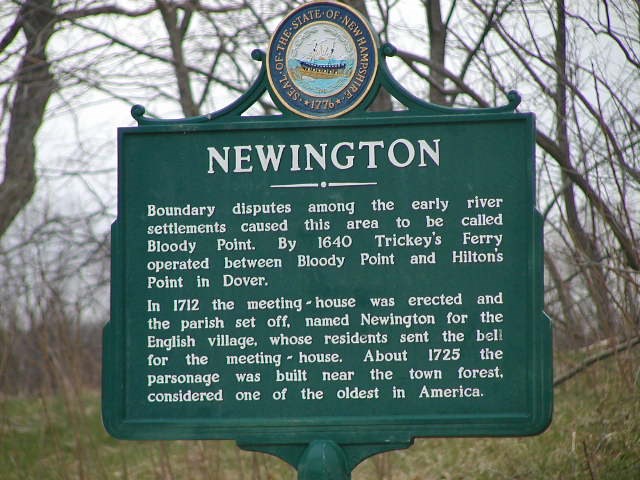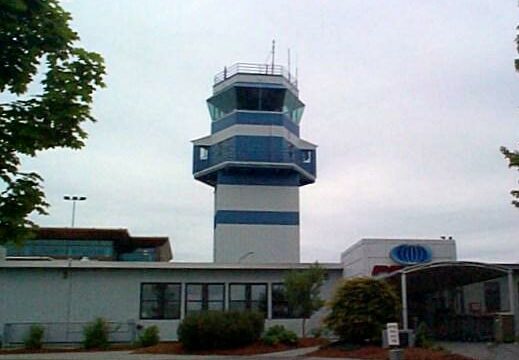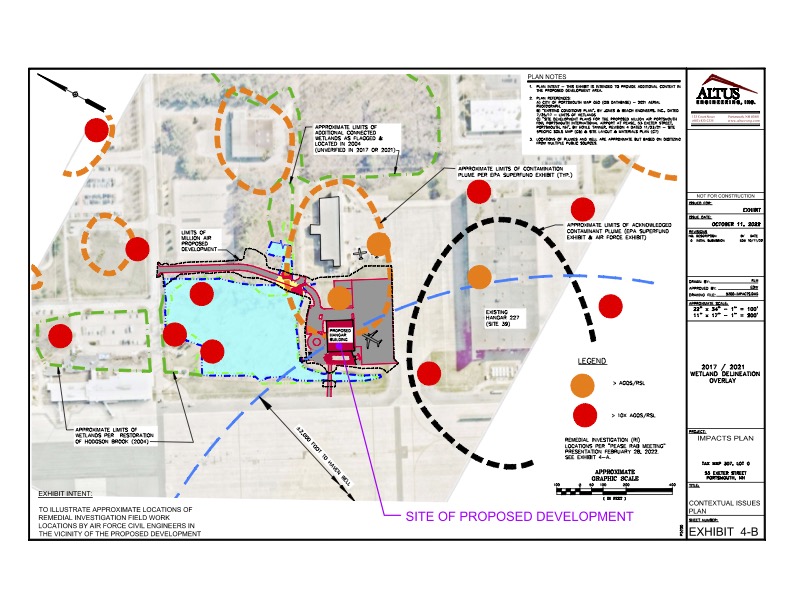Newington Sends SOS as Million Air Rolls On

Newington residents are asking for help protecting their town’s drinking water from potential contamination some fear could be caused by the Million Air construction project at Pease.
“Everyone is extremely concerned,” said resident Meghann Wayss. “They have a little bit of trauma because they’ve seen this steamroll process.”
Wayss is one of the hundreds of Seacoast residents imploring the Pease Development Authority to listen to their concerns about Million Air and the Texas-based company’s plan to build a new private plane facility at Pease. So far, she told NHJournal, it seems like they are being ignored.
“Due process is not taking place,” Wayss said.
Newington’s Selectboard recently published an open letter detailing the perceived problems with Million Air’s proposed facility. The letter also asks residents to get involved in protecting the town.
Selectboard Chair Bob Blonigen said Newington is running out of options as the PDA gets closer to approving Million Air’s new fixed-base operator facility, which includes plans for a 90,000-gallon jet fuel farm many say is too close to wetlands that feed the region’s drinking water systems.
Residents don’t want the PDA to rubber stamp the project with what they say are unanswered questions remaining regarding the safety of town drinking water.
“There’s a groundswell of concern in Newington that the PDA is not responding to our questions; they are not really giving the project a proper look,” Blonigen said.
More than 1,200 residents have signed an online petition asking the PDA to slow down.
Million Air wants to build its fixed-base operator facility on land that will require dredging and filling of wetlands near the Haven Well, according to the Newington board’s letter. The Haven Well feeds into the drinking water for the town of Newington. Residents already living with PFAS contamination from Pease fear Million Air’s project poses a risk of worsening the problem. They cite a review of the project conducted by Danna Truslow, a hydrogeologist hired to look at the site by Port City Air, an aviation company already at Pease.
Truslow found levels of PFAS within Million Air’s proposed site already 10 times the PFAS levels considered safe. None of this seems to make an impression on the PDA, Wayss said.
Resident Jennifer Wiener said while the PDA meetings about Million Air are taking place in public, they are held at times most members of the public cannot attend. The meetings are in the middle of the workday on weekdays. She said that even if a resident can get to a meeting, they are shut out from commenting or asking questions.
“We feel there’s no transparency to this project,” Wiener said.
Wayss recalled arriving late to a recent meeting set for 2 p.m., only to find it was already over. Wayss entered the room at 2:09 p.m. to find the board adjourning the meeting.
“It’s very apparent there is a desired result, and the process is being used to get that desired result,” Wayss said.
State Rep. David Meuse (D-Portsmouth) said he and other Seacoast lawmakers have been hearing volumes from residents who are worried about the project. He said the concerns being raised by Newington selectmen and residents ought to be addressed openly.
“All of the concerns the selectmen have raised are more than legitimate,” Meuse said. “These are questions that need to be answered.
Meuse met this week with state Sen. Rebecca Perkins Kwoka (D-Portsmouth) and state Rep. Robin Vogt (D-Portsmouth) to discuss the situation. He said lawmakers want to get all the facts and fully understand the issues before taking the next step. The biggest concern is making sure Seacoast residents don’t again have their drinking water contaminated, he explained.
“We need to do the homework and have the right kind of conversations with people and advocate for people in the community,” Meuse said. “We want to make sure people who have been victimized before won’t get victimized again.”
Residents like Wayss and Weiner want the PDA to conduct a public, third-party peer review of the design of the project, review alternative sites at Pease where Million Air’s facility could be safely located, bring in a professional wetlands engineer to study the current’s site buffer zone; and offer a complete public explanation of what the public benefit is being realized through the Million Air project.
“We still do not understand how this is a public good when it’s ruining Newington’s drinking water,” Weiner said.
Pease International Tradeport sits on land taken from the town of Newington decades ago when the U.S. government created the Pease Air Force Base, she noted. Since that land went to the Tradeport when the base closed, she said the PDA at least owes residents an explanation.
“We gave away 51 percent of our town when the airbase came in,” Weiner said. “I would expect the PDA to be better partners.”
Supporters of the Million Air project note the Truslow review was funded by Port City Air, a competitor who has no interest in seeing the project move forward.
Peter Bragdon, spokesman for Million Air, said Newington officials and residents have no reason to worry. The wetlands delineation surrounding the proposed facility has been through an independent, third-party review ordered by the PDA already. The New Hampshire Department of Environmental Services has also looked at it. He said the company has agreed to abide by any findings these reviews uncovered.
“Million Air believes the PDA and NH DES are exercising proper independent oversight in this process by ordering an independent third-party review and by having a team of experts, including a certified wetland scientist, walk the property,” Bragdon said. “We look forward to the formal presentation of our proposal to the PDA Board of Directors in the coming months, where the facts can be discussed openly.”




